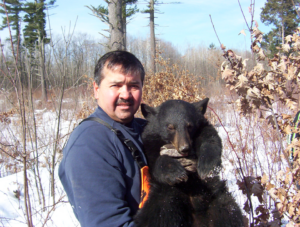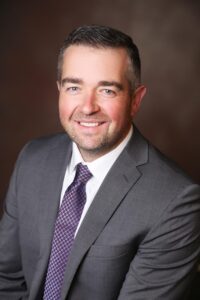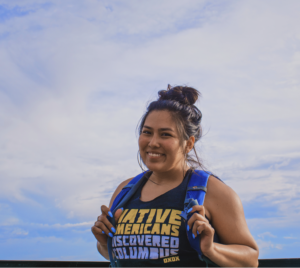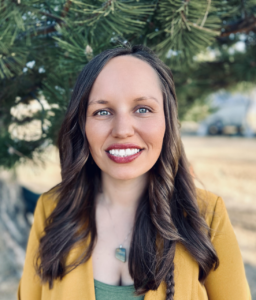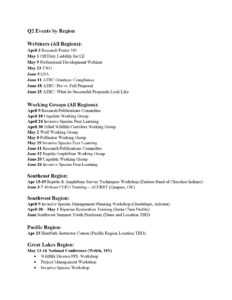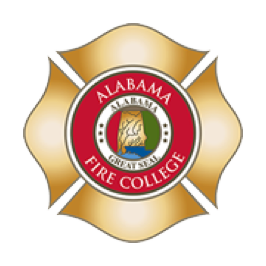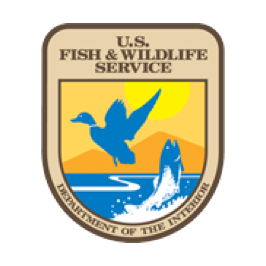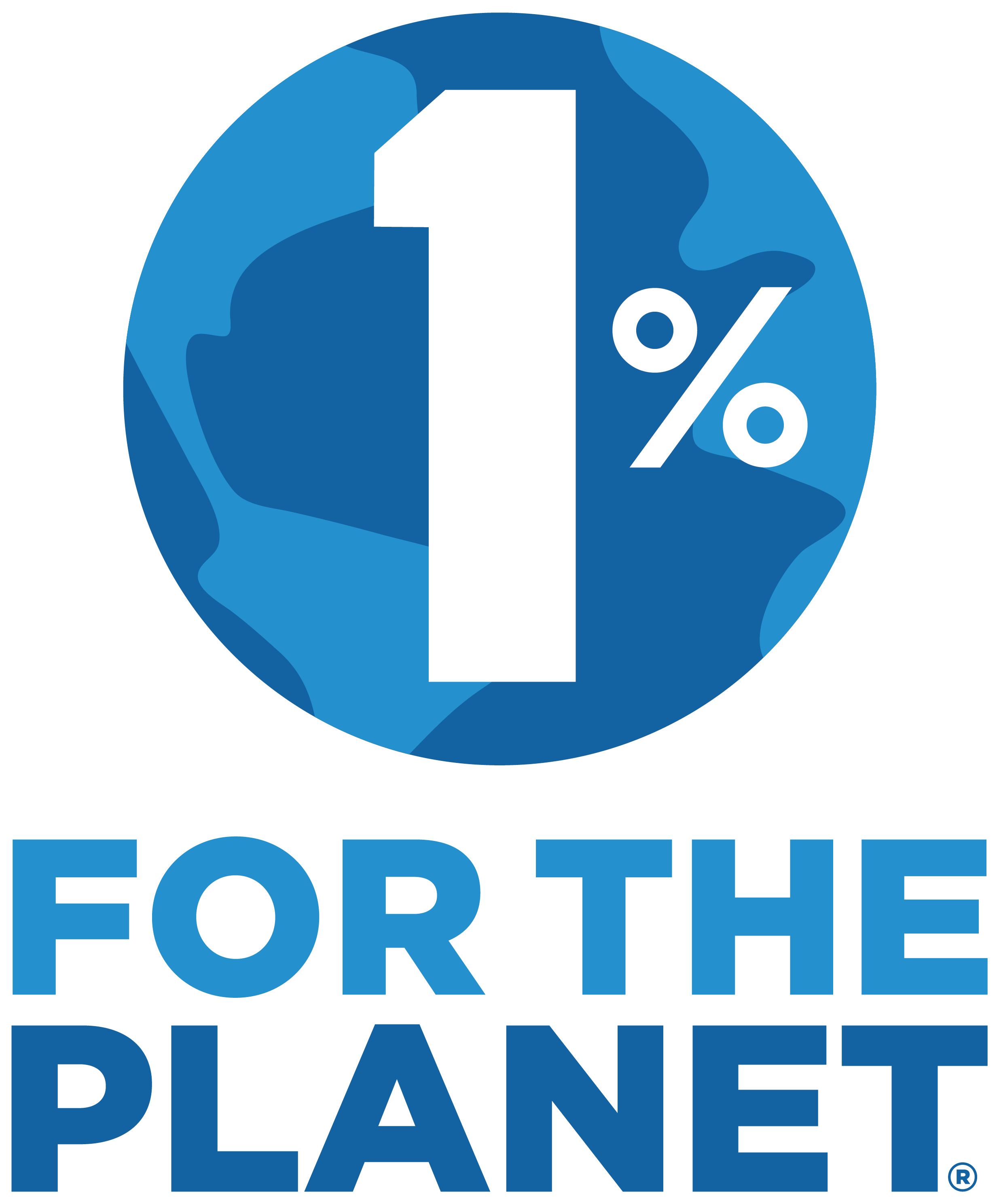Spring 2024 – From the Eagles Nest Newsletter
From the Eagle’s Nest
Spring 2024
We wrapped up 2023 with more additions to the NAFWS team, regional conferences, and trainings. We are looking forward to the New Year!
Featured Articles
Message from the President
Message from the Executive Director
Tribal Highlights: National Fish and Wildlife Foundation Funding in Action
Eastern Band of Cherokee Indians Begins Work on America the Beautiful Challenge Project
America the Beautiful Challenge Awardees Announced
Spring Events Conferences
Staff Updates
The Bio Corner
Invasive Species
Upcoming Events
Position Openings
Funding Sources
NAFWS in the News
Message from the President
Greetings NAFWS Members, Partners, Friends, and Family:
I hope you are all doing well. Its springtime or I think. This is the time of year where you see high fluctuations in temperature and can have rain one minute and snow the next. Each and every spring the Great Lakes Region is smothered by wet snow. This year we did not have any snow until late season and now it will not go away. I am greedy in wishing for warmth and must change my thinking. This spring, we must think of our farmers and forests that we protect. This is a time that we need precipitation. We do not want to see another drought season which is usually followed by the Fire Season. We have seen too much of this lately. There is change in the air and it’s good to see plants starting to grow and turn green.
Springtime is my favorite time of the year. Spring affects animal behavior in several ways. Bring on the warmth and add more daylight, animals become more active, arising from their winter sleep, migrating, and we enter a time where wildlife have their young and this whole cycle starts all over. Winter coats are lost, some animals change their coloration to blend in their new surroundings. For biologist, spring survey season is upon us. We are asked to provide numbers and for me, that means field season, yes!
We are lucky the National NAFWS doesn’t need winter hibernation, they just keep on working for tribes. We have a lot of good and positive happenings with the Society. They can be found under events and training sidebar on our national website (www.nafws.org). Listed are trainings and webinars provided by the NAFWS. It makes me proud of see all our staff excel and provide trainings. I keep saying this, but we as a Society have come a long ways and we are better prepared today to offer our membership more than we had in the past.
We have several opportunities coming up for students. The application period for our in-person National Summer Youth Practicum (SYP). The SYP is in the planning process. Scholarships for all regions are being advertised now. Please encourage your college students to apply.
In 2024, NAFWS saw another increase in our funding and our staff. Through the Bureau of Indian Affairs Self Determination Contract, we hired an administrative assistant and three invasive species technicians. With the addition of a Senior Tribal Climate Resilience Liaison (TCRL) and two Assistant TCRLs, we completed our Alaska Tribal Climate Resilience Liaison team. NAFWS also staffed a including a grants coordinator and two America the Beautiful Field Liaisons. Recently we have been able to hire a new Deputy Executive Director and Public Information Officer. Already, new staff members are making valuable contributions.
Our 2024 Regional and National Conferences are rapidly approaching. The Great Plains conference in scheduled for April 17-18, 2024 in Billings, Montana at the Big Horn Resort and the Great Lakes Region conference will be held in conjunction with the National this Year. Updates on when the other Regional Conferences can be found on our National website when they become scheduled.
We have been planning for our National and Regional Conference. The dates are May 13-16, 2024. The Host Tribe is Prairie Island Indian Community, Minnesota which owns the Treasure Island Resort and Casino. Treasure Island Resort & Casino is located 40-45 miles Southeast from Minneapolis, Minnesota International Airport. We are asking for your presence in attendance. Come and enjoy learning with your fellow peers. These conferences are scheduled to provide you an opportunity to find contacts and/or provide management assistance to tribes that may be seeking some assistance.
We are a membership organization. The NAFWS strives to meet the needs of its member tribes. In order for us to be a successful membership organization, we need all of you to be involved. Let us know what your needs are and we can see what we can do to help you or your Tribe.
Hope you read and enjoy. The NAFWS has been very busy this last quarter and hopefully with this newsletter finds it informative and helpful to you.
Thank you NAFWS members for your continued participation and enthusiasm in our professional community.
I’d like to give a special shout-out of appreciation to our NAFWS Board of Directors, Executive Director and Staff, for their tireless effort working for tribes and their lands! They are sacred.
Thank you all and wishing you success!
Donald J. Reiter,
President, NAFWS and Great Lakes NAFWS Regional Director
Message from the Executive Director
Greetings NAFWS members, partners, and friends! Spring is here in the Dakotas bringing wind, sunshine, and some much needed rain. We are in full conference mode as we prepare for the 41st Annual National Conference hosted by the Prairie Island Indian Community at their Treasure Island Resort & Casino in Welch, MN May 13-16, 2024.
The first quarter of 2024 is behind us with all funding reports completed and our 2023 Annual Report for the Membership available online. We welcomed two new staff members: David Reiss, Deputy Executive Director and McKayla Lee, Public Information Officer, you can read more about them in this newsletter. Emily Hagler moved from a Fish & Wildlife Biologist to the Tribal Mapping Analyst; we are excited to have these talented Native professionals on our team.
After our reports were complete, we hit the trail again. I joined the Grant’s Team in Albuquerque, NM the beginning of February for a meeting with our NFWF partners for the America the Beautiful Challenge Grant. Shailyn Weichman, Wildlife Connectivity Coordinator, and I traveled to Washington, DC at the end of February with NAFWS Regional Directors Donald Reiter, Benjamin Simpson and Matt Gamble and Tribal fish and wildlife professionals Glen Harper, Dr. Caleb Hickman, Gloria Tom, Jessica Fort, and Whisper Camel-Means for a fly-in and briefing on wildlife connectivity. It was a fantastic opportunity to talk about Tribal fish and wildlife work and the challenges Tribes face. I stayed in DC to attend and present at the Biodiversity Funders Group Land and Freshwater Conservation Program Annual meeting. I was fortunate to attend the Alaska Native Relations 101 course in Anchorage, AK at the end of March; I highly recommend this training. I had dinner with most of the AK team as they attended the Alaska Tribal Conference on Environmental Management.
 The Alaska Team was busy with conferences and hosting the second Strengthening Resilience Today training and site visits. NAFWS hosted the second annual Native Women in Agriculture & Natural Resources Symposium in Kashena, WI coordinated by Ashley Mueller, Education Coordinator. We launched several online Tribal only workgroups and offered webinars for funding opportunities and professional development. We held a virtual Interview and Interrogation Training for 21 Tribal Conservation Law Enforcement Officers.
The Alaska Team was busy with conferences and hosting the second Strengthening Resilience Today training and site visits. NAFWS hosted the second annual Native Women in Agriculture & Natural Resources Symposium in Kashena, WI coordinated by Ashley Mueller, Education Coordinator. We launched several online Tribal only workgroups and offered webinars for funding opportunities and professional development. We held a virtual Interview and Interrogation Training for 21 Tribal Conservation Law Enforcement Officers.
Although Recovering America’s Wildlife Act (S.1149) has not progressed like we would like, the need remains for dedicated, annual, sustainable base funding for Tribal fish and wildlife programs along with our commitment to the cause. We continue to seek funding opportunities and strive to reduce access barriers for Tribal fish and wildlife programs.
The Board of Directors voted to establish two committees in 2024, the Conservation Law Enforcement Committee and the Federal and State Relations Committee. The Board also approved the NAFWS Tribal Research Guide: A Guide for Tribes for Research with Non-Tribal Entities developed by the NAFWS Research and Publications Committee. Each of these committees will meet during the Annual National Conference in May. Please plan to attend these opportunities to get more involved with NAFWS and have deeper conversations with our Federal and State partners.
We have yet to find our “down time”, so please continue to follow us on our website and various social media platforms for updates and upcoming events. We are committed to our mission of assisting Native American and Alaska Native Tribes with the conservation, protection and enhancement of their fish and wildlife resources. As always, if you have ideas for the NAFWS, please contact me or your regional director(s). We hope to see you in Minnesota!
Pilamaye ye,
Julie Thorstenson, PhD (Lakota)
Executive Director
Tribal Highlights: America the Beautiful Challenge Funding in Action
Santa Clara Pueblo Awarded Funds for Riparian and Wildlife Corridor Restoration at Santa Clara Pueblo
Utilizing funding awarded by the America the Beautiful Challenge competitive grant program for ecological restoration and cultural preservation, the Santa Clara Pueblo is conducting large-scale riparian and wildlife corridor restoration on their lands.
Spring Events
Native Women in Agriculture and Natural Resources Symposium
To celebrate International Women’s Day and Month, NAFWS held the 2nd Annual Native Women in Agriculture and Natural Resource Symposium in partnership with University of Arizona Federally Recognized Tribal Extension Program (FRTEP) and College of Menominee Nation (CMN) in Keshena, WI. The week was filled with great laughter, empowerment and professional development with topics such as Grant Writing, Indigenous Professionalism, Mentorship, and Self Defense. The forty-eight attendees composed of students and professionals within the natural resources and agricultural fields.
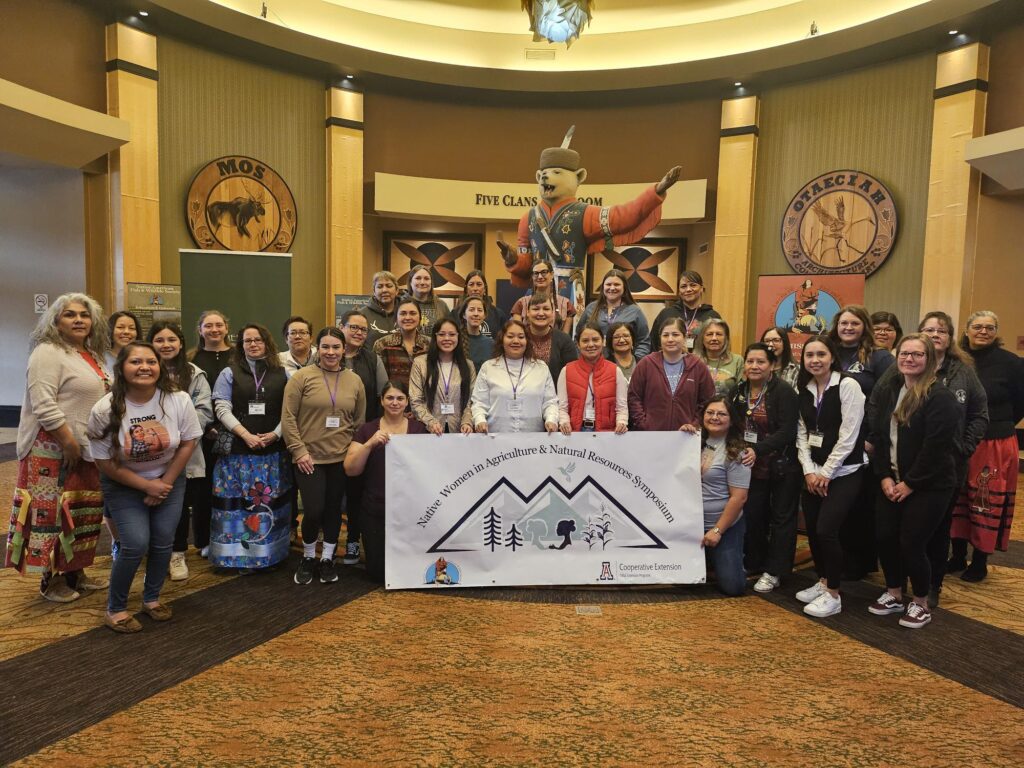
2024 Annual National Conference
Sovereignty to Sustainability – Echoing our elders and nurturing our next seven generations

The 2024 NAFWS Annual National Conference will take place on May 13-16, 2024 hosted by the Prairie Island Indian Community at the Treasure Island Resort and Casino in Welch, Minnesota.
Conference Agenda
- 2024 NAFWS National Conference Agenda
- Meals provided: Dinner (05/14), Lunch (05/15), Banquet Dinner (05/16). Morning/Afternoon breaks serve hors d’ oeuvres – see agenda for more details.
- 2024 National Conference. Medical & Restaurant Info
- Monday Workshop Agendas
National Award Nominations
Nominate individuals for their outstanding contributions to Tribal Conservation. Nominations for Chief Sealth, Biologist of the Year, Conservation Officer of the Year, and Emerging Professional of the Year are due April 17, 2024 at 10 PM MT (DEADLINE EXTENDED).
For more information contact:
Heidi McCann
Office Manager/Membership Coordinator
303-501-9514
Staff and Board Updates
NAFWS is happy to welcome David Reiss as our new Deputy Executive Director, McKayla Lee as our new Public Information Officer, and Emily Hagler as our new Tribal Mapping Analyst. Read bios.
Education Update
2024 Summer Youth Practicum (SYP)
There is still time to apply to 2024 SYP! The practicum is designed to provide Native American students (incoming 10th – 12th grade) an opportunity to gain hands-on and in-lecture experience in the interdisciplinary components of natural resource management and Indigenous knowledge. One of the goals of the NAFWS is to educate Native American youth to understand the importance of professional natural resource management and the interconnectedness to culture, as well encourage them to continue their education and pursue careers in the natural resource fields.
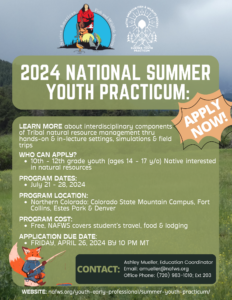 Keep your ears up and eyes wide for our upcoming youth opportunities, due dates and applications.
Keep your ears up and eyes wide for our upcoming youth opportunities, due dates and applications.
If you have any ideas, comments, questions regarding the NAFWS youth programs and outreach, Contact Us.
The Bio Corner
Laurel James, Director of Programs
Team Retreat
The Biologist Team held a work retreat in March 2024 at the Whitney Peak Hotel in Reno, Nevada. The team spent their time completing project management objectives, reviewing accounts, discussing logistics for our busy year ahead and drafting a Request for Proposal for the Certified Technician Curriculum Consultant position, that is open until April 25, 2024. Information can be found here: Jobs – Native American Fish and Wildlife Society (nafws.org). The BIO team is excited for the trainings, webinars and workshops that we have planned for 2024 to fully engage with our tribal communities!
Keep an eye on our website for trainings, we notify members first, as a perk for joining our organization and your have the first opportunity to sign up for our offerings.
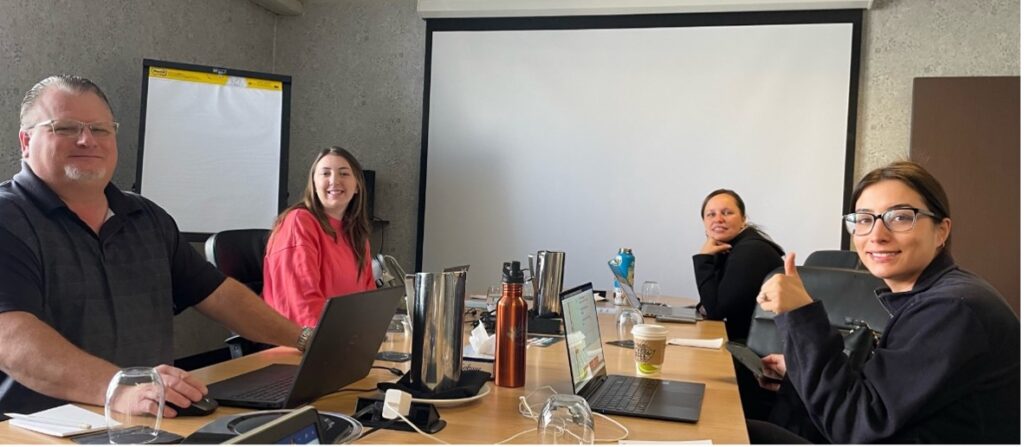
Tribal Wildlife Migration DC Fly-in
Julie Thorstenson, Ph.D., NAFWS Executive Director (Cheyenne River Sioux Tribe), Shailyn Wiechman, NAFWS Wildlife Connectivity Coordinator (Chippewa Cree Tribe), and several other Tribal Fish & Wildlife professionals traveled to Washington DC to advocate for Tribal Wildlife Connectivity.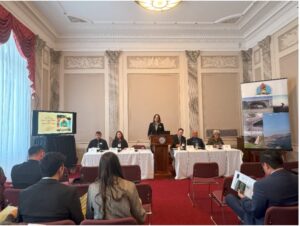
In addition, NAFWS held a briefing that educated Members of Congress and their staff about the work Tribal nations are doing across the United States to proactively develop and implement wildlife connectivity projects. Corridors and habitat connectivity efforts continue to gain momentum at the federal level and our goal was to ensure decision-makers are hearing directly from Tribal fish and wildlife managers on the successes and challenges they face.
Participants that joined for the week were Whisper Camel-Means (Confederated Salish & Kootenai Tribes), Glenn Harper (Pueblo of Santa Ana), Caleb Hickman, Ph.D. (Eastern Band of Cherokee), Don Reiter (Menominee), Gloria Tom and Jessica Fort (Navajo Nation), Benjamin Simpson (Penobscot Nation), and Matt Gamble (Choctaw Nation).
We would like to thank all the participants and the Resource Legacy Fund for their support.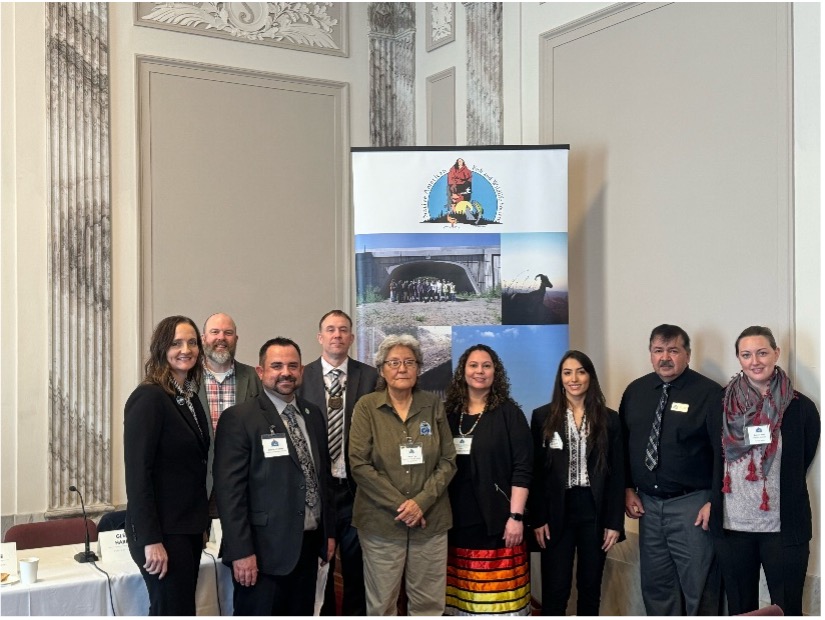
The BIO Team:
Laurel James, Director of Programs – [email protected]
Shailyn Wiechman, Wildlife Connectivity Coordinator – [email protected]
Sean Cross, Fish & Wildlife Biologist – [email protected]
Hannah Golden, Fish & Wildlife Biologist – [email protected]
Tribal Wildlife Corridor/Connectivity Working Group
In January, February, and March, we had the pleasure of two great presentations on connectivity work being done on Tribal lands. Thank you to the presenters from the NAFWS Northeast and Southeast regions for your time and the insightful discussions that took place afterwards. The next meeting will take place (rescheduled to) Tuesday, April 23rd at 11am MT. These meetings take place on the last Tuesday of every month (excluding summer field season, June-September).
If you are a tribal fish and wildlife professional and/or working for a tribal agency, please contact me if you would like to join the working group! Shailyn Wiechman, [email protected].
Ungulate Working Group (Chronic Wasting Disease and Bighorn Sheep)
The first meeting of the Ungulate Working Group was held February 15th, focusing on Bighorn Sheep. Thank you to our presenter from the NAFWS Southwest Region for your time and the insightful discussions that took place afterwards. The next meeting will focus on Chronic Wasting Disease (CWD) on April 18th at 11am MT and we will be joined by a tribal presenter from the NAFWS Great Lakes region. The scheduled meetings dates for 2024 are as follows: April 18th (CWD), June 20th (Big Horn Sheep), August 15th (CWD), October 17th (Big Horn Sheep), and December 19th (CWD).
If you are a tribal fish and wildlife professional and/or working for a tribal agency, please contact us if you would like to join the working group! Shailyn Wiechman, [email protected], Emily Hagler, [email protected].
Riparian Restoration Training
April 30- May 1, 2024 in Española, NM
Through a partnership between the Native American Fish and Wildlife Society, and Santa Clara Pueblo, a Riparian Restoration Training will be held April 30th-May 1st, 2024, travel days being April 29th & May 2nd. This workshop will be held at Santa Clara Hotel & Casino in Española, NM. This two-day training will highlight an innovative and iconic case study in public and private collaboration on sovereign tribal lands. By incorporating Indigenous Knowledge and values into a post fire recovery process, Santa Clara Pueblo is working to achieve riparian wildlife corridor restoration and wildfire recovery on their watershed. The training will be a combination of classroom and field applications. The final day will be a full day in the field as attendees participate in native plant restoration, sediment stabilization, forestry and fire management, and process-based watershed resilience.
Please refer to the NAFWS Riparian Restoration Training event webpage or contact, Shailyn Wiechman, [email protected] for more information.
Wolf Working Group
The Wolf Working Group kicked off in March with 16 participants in attendance. The Wolf Working Group’s purpose is to equip tribes with knowledge and a network of Tribal professionals to mitigate conflict, and collaborate on issues and opportunities related to wolves. Whether tribes are living with wolves, wishing to bring wolves back to historically occupied territory, or are anticipating the arrival of wolves within Tribal lands, this working group is an opportunity to share knowledge and build capacity. The first meeting hosted the Menominee Indian Tribe of Wisconsin, Don Reiter presented on their work to recover and manage wolf populations.
The working group will cover a wide range of topics and will give ampule opportunities for peer-to-peer learning. If you are interested in participating or presenting at an upcoming meeting, please reach out to a NAFWS Biologist.
Upcoming Acoustic Bat Webinar Series
NAFWS will co-host an Acoustic Bat Webinar Series with the US Geological Services and Oregon State University. No matter your geographic location, bats play an important role in many habitats around the world. Some plants depend partly or wholly on certain bat species to pollinate their flowers or spread their seeds, while many bats help control insects by feeding on them. Bats are ‘indicator species’, changes to these bat populations can indicate changes in aspects of biodiversity. Join NAFWS, USGS and OSU to learn about how to monitor bats using acoustic equipment. Our spring series will address the basics of acoustic bat monitoring, and our fall series will dive into processing regionally specific acoustic bat data. The series will kick off May 2nd with an webinar on acoustic bat monitoring. This webinar will cover how to define goals and objectives of an acoustic bat monitoring program, basics of echolocation, detector types and equipment, monitoring methods (active vs. passive), site selection, detector placement, and data management. Visit our website for more information.
Wetlands Mapping and Funding Opportunities on Tribal Lands
NAFWS is hosting a virtual webinar provided by the USFWS on May 2 to discuss wetlands mapping projects and assistance and funding opportunities to map tribal wetlands using EPA Tribal Wetland Development Grants and other funding sources.
FREE FLIGHTS!
Could you use flight time to accomplish goals in relation to your natural resource related work? NAFWS will be scheduling a virtual webinar with Lighthawk.org. They provide flights (fixed wing) at no cost to tribal partners. Please keep an eye on our events page for zoom registration information and join us as at the National Conference and meeting, Besty Daub of Lighthawk.org in person. We will hold the virtual webinar after our National Conference, near the end of May, 2024.
Pacific Region Hunt Safe Instructor’s Course
The NAFWS Hunter Education coordinator is planning a Hunt Safe Instructors course in the Pacific Region in early summer. The Hunt Safe program is IHEA – world certified and allows tribes the opportunity to conduct their own hunter education programs for their youth or new adult hunters in a manner they choose. The standardized 10 components of the curriculum are built into the course, but tribal programs can add any additional learning they see fit for their hunters. More information will be emailed and posted as the details are arranged.
DOITalent Account Creation Webinar
There will be an instructional webinar on how to set up and activate a DOITalent account for NAFWS members and member tribes on May 23rd of 2024. A DOITalent account is required to register for any DOI agency offered courses, including the National Conservation Center, the USGS TESNAR program and any other courses outside of the BIA. More information will be available via the NAFWS website.
Invasive Species Team
The NAFWS Invasive Species Team, hosted along with the Pasqua Yaqui Tribe, its first Invasive Species Management Planning Workshop on April 9, 2024 in Guadalupe, Arizona. 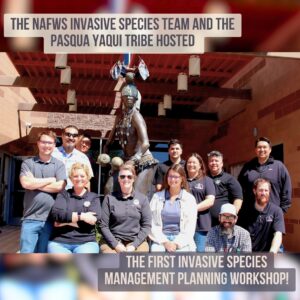 The workshop provided presentations by Brandy Nelson from Ak Chin Indian Community; Vicki Olmstead from Salt River Pima Maricopa Indian Community; Raychel Frye from Gila River Indian Community, and the Invasive Species Team (Annette Bravo, Thomas Hafen, Wade Reiter and Mitzi Reed). Added bonuses to the workshop was a fun, interactive activity that can be developed for youth and citizen science opportunities to help illustrate how an non-native species can invade areas and overtake native species.
The workshop provided presentations by Brandy Nelson from Ak Chin Indian Community; Vicki Olmstead from Salt River Pima Maricopa Indian Community; Raychel Frye from Gila River Indian Community, and the Invasive Species Team (Annette Bravo, Thomas Hafen, Wade Reiter and Mitzi Reed). Added bonuses to the workshop was a fun, interactive activity that can be developed for youth and citizen science opportunities to help illustrate how an non-native species can invade areas and overtake native species. 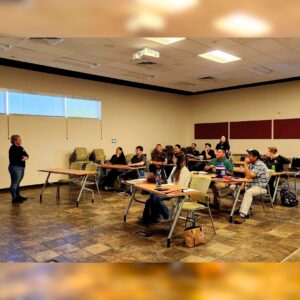 A roundtable discussion gave participating Tribes an opportunity to voice concerns, needs, and frustrations with invasive species issues to conclude the workshop. Much gratitude goes to Tribal Administrator Jose-Enrique Saldana for his assistance with the venue, logistics, and catering for the workshop.
A roundtable discussion gave participating Tribes an opportunity to voice concerns, needs, and frustrations with invasive species issues to conclude the workshop. Much gratitude goes to Tribal Administrator Jose-Enrique Saldana for his assistance with the venue, logistics, and catering for the workshop.
Funding Opportunities
NAFWS serves as a hub for funding opportunities available to Tribes. Below are current opportunities for funding. We work to consistently keep you apprised of new funding so be sure to check our Funding Resources Page periodically!
Network for Landscape Conservation: Catalyst Fund; Due April 26, 2024
The Network for Landscape Conservation is pleased to share the 2024 Request for Proposals for the Catalyst Fund, which strives to accelerate the pace and practice of collaborative landscape conservation and stewardship across the United States by investing in Landscape Partnerships.
White Nose Syndrome Grants to States and Tribes; Due Weds, May 8, 2024
The U.S. Fish and Wildlife Service (Service) is offering financial assistance to wildlife and natural resource management agencies and departments of states, the District of Columbia, and federally-recognized Native American Tribes for efforts related to the management of White Nose Syndrome in Bats.
First Nations Development Institute (FNDI): Advancing Tribal Nature- Based Solutions; Due Weds, May 22, 2024
To support climate action that addresses adaptation and disaster preparation, First Nations Development Institute established the “Advancing Tribal Nature-Based Solutions” project – designed to provide tribes and Native nonprofits with resources to support climate action that addresses adaptation and disaster preparation (e.g., wildfires, flooding, drought) through the application of nature-based solutions based on Native knowledge.
National Environmental Information Exchange Network Grant Program; Due Weds, May 22, 2024
The EPA Exchange Network Grant Program is soliciting project applications to support the Environmental Information Exchange Network (EN), which fosters better environmental management and decision-making through increased access to timely, high quality environmental information.
USFWS Invasive Species Eradication Funding Opportunity; Due May 27, 2024
USFWS invites proposals to support the eradication of a newly introduced or established species in terrestrial or aquatic habitats of the United States.
FY2024 Wild Cervid CWD Funding Opportunity; Due June 10, 2024
The U.S. Department of Agriculture’s Animal and Plant Health Inspection Service (APHIS) is announcing the availability of more than $12 million for states and Tribal governments, research institutions and universities to control and prevent chronic wasting disease (CWD) in wild and farmed cervids (e.g., deer, elk). There is a Tribal set-aside of $500,000 for Tribal Nation projects. Tribes are also eligible for the larger pool of $5.5 million, open to states, Federally Recognized Tribes, tribal organizations, and universities.
Tribal Wildlife Grants; Due June 21, 2024
The TWG Program provides opportunities for federally recognized Tribes to engage in fish and wildlife conservation efforts on their lands. Total Funding: $6.2 million estimated; Minimum Award: $10,000; Maximum Award: $200,000; No Match Required.
Position Openings
As always, we have so much on our calendars to look forward to. Be sure to check out our events page regularly for in person trainings, events, and webinars to help in your professional development! We also have our job board that is chalk full of new internal as well as external jobs updated daily! Take a look and if you are wanting to have a job posted, please Contact Us with your position!
